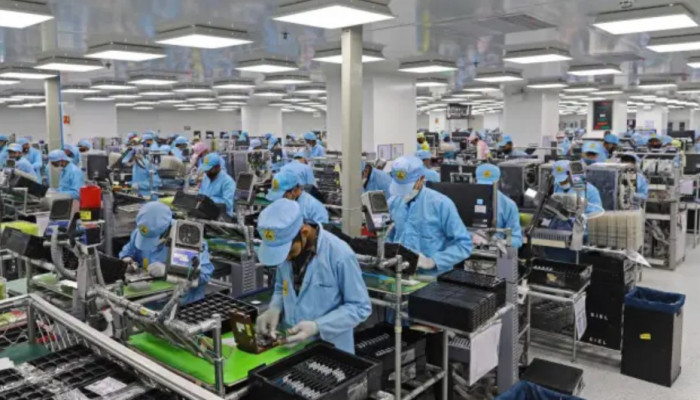China 'high-risk' for supply chains, U.S. companies favouring India as a destination: OnePoll Report
- In Reports
- 03:23 PM, Jan 25, 2024
- Myind Staff
A growing number of U.S. firms consider China a risky choice for supply chains, with India poised to benefit. According to a survey by UK market research firm OnePoll, 61% of 500 U.S. executives would choose India over China for manufacturing, and 56% prefer India for their supply chain needs in the next five years.
As per the survey commissioned by India Index in December, 59% of respondents deemed sourcing materials from China "somewhat risky" or "very risky," while only 39% expressed similar concerns for India. Approximately 25% of participating executives currently do not import from either China or India.
Companies view India as a long-term investment strategy, not just a short-term move to avoid tariffs, according to Samir Kapadia, CEO of India Index and managing principal at Vogel Group. The warming ties between the U.S. and India, driven by President Joe Biden's "friendshoring" policy, encourage diversification away from China. Modi's state visit to the White House in June marked a new chapter, sealing deals on defense, technology, and supply chain diversification.
"The US and China continue to sit in rather chilling air. Whereas there is a constant stream of iterations, conversations, dialogues, and agreements between the US and India," stated Samir Kapadia. Recent investment announcements include Maruti Suzuki's $4.2 billion plan for a second factory and Vietnamese electric auto maker VinFast's intent to spend approximately $2 billion to establish a factory in India.
Despite the prevailing optimism, US firms maintain a cautious stance regarding India's supply chain capabilities. According to the survey, 55% of respondents identified quality assurance as a "medium risk" they might encounter if they establish factories in India.
In September, a fire prompted Apple supplier Pegatron to temporarily halt operations at its Chennai-area factory. US firms expressing interest in India are concerned about delivery risks (48%) and intellectual property (IP) theft (48%).
Amitendu Palit, a senior research fellow at the Institute of South Asian Studies, cautioned that replicating Apple's rapid establishment in India might not be immediately achievable for other companies due to Apple's unique capacity to create an ecosystem swiftly.
Both Palit and Kapadia acknowledge the impossibility of entirely shifting supply chains away from China. Kapadia stated that China will always be a cornerstone of US supply chain strategy, with investments still robust. Raymund Chao, Asia-Pacific and China chairman at PwC, notes that China remains the "second choice" for investments after the U.S.
Similar to India, Vietnam has been a notable consideration for investors adopting a "China plus one" strategy. Last year, the Vietnamese market experienced over a 14% increase in foreign direct investments compared to 2022, with $29 billion pledged from January to November, according to LSEG data.
However, Samir Kapadia emphasized that Vietnam cannot match India's potential, noting that China's vast customer base gives it a market access advantage not offered by Vietnam. Companies are making these decisions for cost savings and access to markets rather than mere cost arbitrage, he added.
Image source: CNBC







Comments